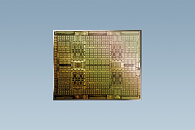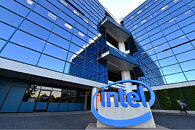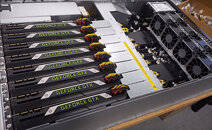
Square Enix Taking Legal Action to Prevent US Release of "Front Mission-style" Game
Square Enix's long-running Front Mission franchise was set to expand with an all-new entry—Front Mission 2089: Borderscape—first revealed back in April 2022. The Japanese multinational publisher announced BlackJack Studio as their chosen development partner on this fledgling project, destined for launch on mobile platforms (Android and iOS). Months later, this collaboration was terminated. Video game news outlets have picked up on a new-ish lawsuit; filed on March 13 in a Seattle, Washington court. Contained information indicates that Square Enix ended a licensing agreement and canceled development in October 2022. The 26-page legal document alleges that HK Ten Tree Limited (aka BlackJack Studio) had produced a "Front Mission-style" game that reuses assets from the shelved "2089: Borderscape" title.
BlackJack's Mecharashi IP is advertised on Steam as a: "mecha-themed tactical turn-based game. The game adopts a Front Mission-style combat system, where you can assemble mechas however you want, equip a wide selection of weapons, and choose your favorite pilots to engage in battle." According to the latest reports, Mecharashi/Metal Storm has already launched in China and Japan—a Western release is "coming soon." Square Enix seems intent on preventing the game from reaching a wider audience. According to Polygon, the Japanese video game giant has: "sent multiple DMCA takedown notices to get the game removed from storefronts; it was removed from Steam, but is back after a counter-claim was submitted. Square Enix said it also filed a lawsuit in Japanese court." Additionally, Square is seeking "maximum statutory damages of $150,000 for each copyright infringed." The Front Mission IP lives on in the shape of remakes—under license, Forever Entertainment S. A. developed and published Front Mission 1st: Remake (2022). Front Mission 2: Remake arrived roughly a year later, with Storm Trident S.A. taking care of development duties. Front Mission 3: Remake was unveiled last year at the Tokyo Game Show 2024.
BlackJack's Mecharashi IP is advertised on Steam as a: "mecha-themed tactical turn-based game. The game adopts a Front Mission-style combat system, where you can assemble mechas however you want, equip a wide selection of weapons, and choose your favorite pilots to engage in battle." According to the latest reports, Mecharashi/Metal Storm has already launched in China and Japan—a Western release is "coming soon." Square Enix seems intent on preventing the game from reaching a wider audience. According to Polygon, the Japanese video game giant has: "sent multiple DMCA takedown notices to get the game removed from storefronts; it was removed from Steam, but is back after a counter-claim was submitted. Square Enix said it also filed a lawsuit in Japanese court." Additionally, Square is seeking "maximum statutory damages of $150,000 for each copyright infringed." The Front Mission IP lives on in the shape of remakes—under license, Forever Entertainment S. A. developed and published Front Mission 1st: Remake (2022). Front Mission 2: Remake arrived roughly a year later, with Storm Trident S.A. taking care of development duties. Front Mission 3: Remake was unveiled last year at the Tokyo Game Show 2024.














































